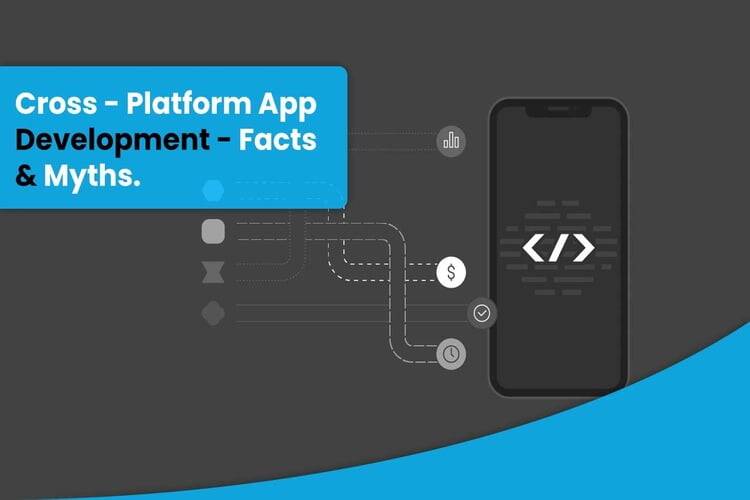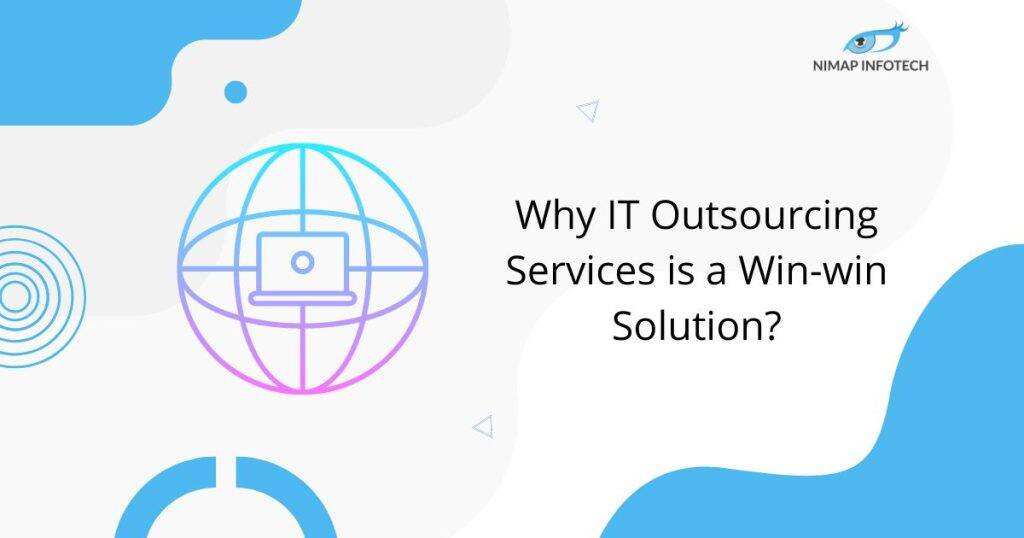Understanding Cross Platform App Development- Facts and Myths
Firstly, cross platform app development has taken the world by storm. With its ability to cater to multiple platforms it is no doubt that cross platform is the next level of app development. Even if cross platform has introduced a ton of different features and benefits. It is worthwhile to know that there are many facts and myths surrounding this vertical in the app development industry.
Here we present to you 10 facts and myths that we will find out whether if it is true or not.
- Single code works on Android as well as iOS
- Cross-platform apps are not secure
- Cross-platform apps are slow
- Native device’s functions and features are unavailable with cross-platform app development
- Design and UX are poor and problematic – cross-platform apps need a lot of work
- Cross-platform app development costs are lower
- It’s easier to manage the project in an Agile way
- Instead of building a cross-platform app, it’s sufficient to make your webpage responsive
- Cross-platform frameworks can disappear anytime
- Users will notice a difference
1. Single code works on Android as well as iOS:
This statement is TRUE. Which ever framework you choose for your cross platform app development, be it React Native or Flutter or Xamarin, It depends entirely on the frameworks ability to have a single code base.
For example if you choose flutter, you can have upto 100% of the code migration and code base availability for both iOS and Android. Flutter is able to manage the code base well and can assure you 100% code compatibility and you can work for both iOS and Android platforms in a single go or attempt.
2. Cross-platform apps are not secure:
This statement is FALSE. Also this statement is baseless. There are many app which provide rich set of features that make use of cross platform app development. Although you do not get the Native app like security, it is worthwhile to know that cross platform app development are equally safe and secure when it comes to the security point of view.
In order to make a cross platform app secure you need to have skilled developers who know how to make them secure. It is crucial to choose a particular framework that offers the best security such as Flutter or React Native.
3. Cross-platform apps are slow:
This statement is FALSE. This is dependent on the framework that you choose to work with when developing cross platform apps. For example Flutter, flutter code is compiled ahead of time and it converts into native code that the machine understands. Hence you get native apps like performance that is equal to or better than even native code sometimes.
Hence it is imperative to just believe that cross platform apps do not offer same level of performance as native apps. In the real world you will hardly be able to tell the difference in performance when you compare it with native apps and cross platform apps.
4. Native device’s functions and features are unavailable with cross-platform app development:
This statement is FALSE. Modern cross platform app development frameworks are developed in such a way that they allow a developer to access the devices native functions such as camera, bluetooth, sensors and many more. It is up to the developer to integrate and use the native functions in his or her app.
This feature is made readily available to them. If you compare it is economical to use cross platform app development. As it is lower in cost and lower time is taken to develop apps.
5. Design and UX are poor and problematic – cross-platform apps need a lot of work:
This statement is FALSE. However if the UI and and UX is concerned, it depends on the skill level and expertise of the UI UX designer that you hire. Whatever UI interface and wireframes that he or she creates, it is able to use that particular UI for designing a cross platform app.
Cross platform apps UI and UX are not dependent on the ability to make the app work, however it is not related to the workings of the UI and UX. It all depends on the skill level and the kind of UI created for the cross platform app.
6. Cross-platform app development costs are lower:
This statement is TRUE. When you compare it with native apps the costs associated with app development are lower in number. When you work Native apps then you have to hire and build separate teams for both iOS and Android.
That is two different teams. Also the time taken to develop the app as well as the resources will be much hire in number compared to cross platform apps. This is because with a single team for cross platform apps you will be able to create code that runs flawlessly on both iOS and Android platforms.
Also Read: Flutter vs Xamarin vs React Native: Which cross-platform Mobile App Development framework
7. It’s easier to manage the project in an Agile way:
This statement is TRUE. When you work native app development, it can be quite difficult to manage and organize the work flow in the team using Agile methodology as it requires the customer iterations and workflow to be shared and updated to the customer at every time.
When you work with cross platform app development one set of designers and developers as well as quality assurance engineers can work in tandem to suit the agile methodology. So it is way easier to manage cross platform app development in an Agile way instead of going the native route.
8. Instead of building a cross-platform app, it is better to make your webpage responsive:
This statement is FALSE. Simply having a mobile responsive website does not translate into mobile specific behaviour or apps. Of course you can have mobile responsive website as well as progressive web apps that provide good mobile apps for your business needs. Both websites and mobile apps are two different verticals that cater to different needs of the user. Websites can never be a replacement of mobile apps.
9. Cross-platform frameworks can disappear anytime:
This statement is FALSE. Cross platform frameworks have a strong hold on the market segment and are here to stay as they allow app developers to create apps using only a single code base and have highest level of compatibility with multiple platforms.
It also lowers the cost and development time significantly. therefore with all the features and benefits that are provided. It is no doubt that these frameworks will reign the future of mobile app development in general.
10. Users will notice a difference:
This statement is FALSE. Unless you are developing a 3D game, users will not be able to tell the difference in general usage of mobile apps. The gap of performance that is provided by Native apps when compared to cross platform apps are very small in nature.
When you hire the right talent and resources for your cross platform apps, users will get similar to Native app like performance with the right kind of resources.
Read More: Benefits Of Custom Mobile Application Development For Your Business
Conclusion:
So we have shared with you the 10 facts and myths that we busted when it comes to Cross Platform app development. If you wish to hire app developers then do contact us with your requirements at enquiry@nimapinfotech.com. We have the best talented developers ready to onboard your project and meet your expectations.

Author
-

Sagar Nagda is the Founder and Owner of Nimap Infotech, a leading IT outsourcing and project management company specializing in web and mobile app development. With an MBA from Bocconi University, Italy, and a Digital Marketing specialization from UCLA, Sagar blends business acumen with digital expertise. He has organically scaled Nimap Infotech, serving 500+ clients with over 1200 projects delivered.
View all posts








